How to Find a Career That is Right For Me is a common question I hear from students! Students and families understand that the ultimate goal after attending college is to find a career that is a good fit for them. Making decisions can feel overwhelming for students, but it isn’t something that is set in stone and there are ways to help students find potential interests!
Having some ideas of what a student is interested in can help with selecting a college. Today we are going to talk through why it is helpful to know your potential career interests and provide you with a list of resources to narrow down those interests.
You will also find the links we mention in the show below.
- CNBC Article
- Your Free Career Test
- College Board Big Future
- My Next Move
- Princeton Review Career Search
- Roadtrip Nation
This show is for the confused college applicant and family to learn simple and effective strategies to help you find the BEST college for your student while having positive conversations. This will turn you into the College Ready applicant and family so you can be confident with your next steps and your choice of college!
Please subscribe so you don’t miss any episodes and leave a review so others can find us! Here are a few episodes you might also be interested in:
Episode 2 How to Find the Right College for Your Student Part 1
Episode 3 College Application Success: Having Positive Conversations
Episode 6 Does College Searching Have to be SO Stressful?
You can also download our free guide on How to Start or Expand Your College Search here.
Join our free Facebook group here to ask your questions and have a positive community!
I’m Courtney Kountz and I’m looking forward to serving you and your student!

Podcast Transcript
0:00:00.1 S1: An article on CNBC, you recently reported that half of Americans who quit their jobs within the last year made a career change when they quit, this change has become a lot more common in recent years, and especially due to covid, there have been some pretty major career changes but it’s also something that can become a pretty costly change, and so as we’re talking about what our students are doing or as the student, what you are planning to do when you graduate from high school, we want to make sure that we have some positive conversations, it feels like there can be a whole lot of pressure on choosing that, create that right career, choosing that perfect college major, choosing exactly what you want to do. So let’s talk through how to find a career that is right for you. Hey there, I’m Courtney, and I’m the founder of confused to college ready. With over 15 years experience as a mental health therapist turned school counselor, I am bringing my experience and expertise to help you navigate the college search experience. My goal is to serve students and their families and unlock the secrets to college searching, stay to… Okay, so as we get started, one of the things that I would love to ask you to do, as I normally do, when we start out a podcast is please, if you are enjoying our show, please leave us a review on the podcast that helps others find our show, I really enjoy being able to know what you are learning and what has been helpful for you, and it just means a lot to me and it helps others to be able to find the show as well.
0:01:58.5 S1: Also, don’t forget that we have our free Facebook group where you can join us ask questions, learn about all of the different things that are related to your college search, ask questions, join our community. That website is confused to college ready dot com group, and if you join us there, then we would love to see you. So I want to tell you about a conversation I had with a family and we were discussing… Their student was young, still early on in high school, I think we were in sophomore year, and we were talking through different potential careers, how that might play a role in their college search and the major, and that that is going to be some of the first steps that they want to take… And that finding the right job, we’re not necessarily talking about just a job, but looking at potential career fields and that that perfect job would come later… If there is such a thing as a perfect job, we know that we’re going to want to enjoy what we do, but it doesn’t mean that it’s always going to be easy and simple, sometimes it takes a lot of hard work, but the parents outlook on the situation was that they were going to look at a major, they were going to look at a college and that they…
0:03:23.9 S1: That was the only step that they were going to take, they weren’t going to think about careers, and that wasn’t something that they wanted to even consider. Later on, I spoke with a student privately, and the student told me that they had no idea what majors to even know, what schools to look at, because a student had no idea what they wanted to do. We came back together after I had talked with the student to go a little bit more in-depth about some of those specifics of why looking at possible careers or possible areas of interest isn’t necessarily pigeon-holing you, and that while the job market is changing, that it can help to define what schools you… A student is looking at… So what I want you to do, grab your pen, grab a paper, and we’re going to go through some different steps to help students figure out what might be the right career for them. So number one is, I want students to write down a list of courses, hobbies, extracurricular activities that they might have enjoyed or that they were good at, but also remember, just because you’re passionate about something or you enjoy it, it does not mean that that should be a career choice, and I will tell you, I am speaking from personal experience on this one, I was a music major originally, and love music, I enjoyed singing, I was in band, I did all the things.
0:04:54.9 S1: And it was not a good fit for me.
0:04:58.0 S1: As far as careers go, I actually got to a point where… And for the students that are listening, this is one of those Do as I say, not as I did. I actually lost my scholarship because my grades were so low, I had to work really, really hard over the next couple of years to get everything back up, and I did, but it was not easy, so you want to look at things you’re passionate about, but also something that you will want to do every day for the of your life and something that you’re good at. The next thing that I want students to look at, excuse me, are different career interest inventory, so one of them is… We’ve talked about it before, the college board, big future, where you can look at different career searches… College searches. Scholarship searches, that’s a great place to start. My next move is another one, Princeton Review has a career search, there is a website called your Free career test dot com, this is another really good option. Some of the career tests are going to be shorter, some of them are going to be a little bit longer, it really depends on what you most want to do, there also is…
0:06:12.8 S1: And this will go into a little bit with what we’re going to talk about in number three, but Road Trip Nation, where you can watch interviews with professionals to hear about what they do, so that you can know, is that something that I want to do? Or is that something where, Oh my gosh, I want to run away. That is not it at all. And that can be just as helpful to know what you don’t want to do as much as what you do want to do.
0:06:37.2 S1: So number one, write down the list of courses, hobbies, those extracurricular activities that you enjoyed, number two is look at some of those career interest inventories there are some that are paid, there are college and career consultants out there that you can go pay money to complete different assessments, but the tools that we that I’m talking about today are free, number three is using resources that are at your high school, so there might be career search tools that students have, that the district has paid for, that you can access things like naan ORU science is another similar paid tool that districts can purchase. So there are several different options there, you have your school counselors that you can go to to talk about potential career development, they… Some cities, some states have… Some schools will have a Career Development Facilitator that’s somebody that you can go to and ask questions, have conversations, find out about summer employment, which also can help you determine… Yes, I’m interested in that. Or not at all, different career fairs that you can go to different college visits to learn about the specifics, maybe it is taking different classes at your school, if you think that you are interested in engineering, and your school offers in a series of engineering classes when you get into that first course and say, Oh, I don’t know about this, I’m not quite sure that I like it, and you take another one and say, Nope, it definitely isn’t for me, or…
0:08:11.9 S1: Oh, wow. Now that we’re getting into it, I really do. That’s not just for engineering, it can be for any particular area, so that Career Development Facilitator can help with that. The other person that is in some schools is going to be your work-based learning coordinator, and that’s someone who can help students with connecting for interviews to learn more from people, internships, job shadow experiences. In some schools, if you complete a certain area of study, they actually will have you go into different… So for example, a child development, maybe you’ll go into an elementary school as part of… Or an early childhood center as part of that internship experience, or if it is health science, maybe you’ll go into a pharmacy or into a hospital for some inner internship experience is kind of that Capstone. So the work-based learning coordinator can help with that. So there are a lot of resources that are available in your high schools, and I’m going to throw in a bonus in a little bit that we’ll talk about as far as resources at college once you get there. So number four is consider your personal values, look at your work time, how much time are you having to work, what kind of salary do you have…
0:09:31.8 S1: Are you happy with what you’re doing? There are be days that are hard, it’s not every day that you love what you do, but are there more days where you’re happy with it, is it something that you are choosing because you feel the student feels like that’s something that they have to do or… And in some families, there are options that the family will say, Okay, you’re going to be able to choose from these particular areas and the student can choose which one is going to be the best fit, but looking at those personal values, looking at what’s going to make you as happy as possible in that work. And then number five is looking at potential careers and defining a possible major, so know that your injuries are going to change a lot of times when you take those initial courses in high school or college, it can show you what you don’t want to do just as much as what you do want to do? I told you all that I had that music major and initially I loved and still love music, I turned that major into a minor because I had just enough classes and I needed to take one more, and as I took several other courses, I learned that I was most interested in psychology and human growth and development, and so I went route and then made my choices about what I was going to do after I graduated, so knowing that your interests can change the student that I mentioned before, as we talk through her values, and that we weren’t trying to define a particular job for the student as a 15-16-year-old, then we were able to have some better conversations, we looked at career interest inventories, we talked more in-depth about what might be a good fit or as far as schools, so that if she decided that she wasn’t interested in one of those top couple of areas that she would be able to transition into a different major, and we ended up that we found several schools that she could apply to that we’re going to meet that criteria, and also one that her parents were going to be completely okay with…
0:11:43.0 S1: So that was incredibly helpful for her, then as you look at potential majors in different career fields, so you say, You know what, I really like business.
0:11:55.2 S1: So having a business that’s something that I’ve always wanted to do, I had the lemonade stand when I was little, I moved on and we would sell different things at yard sales, or I became kind of an entrepreneur with yard work services or babysitting or whatever it might be… Or developing some kind of product or service for others that can help you realize, Okay, so maybe business is the way that I want to go, that still is really quite broad.
0:12:26.2 S1: And so is that something that you want to narrow down or is that something that you want to wait, and you want to explore more when you get into college, but now that business is that particular area of interest for right now. So the other thing is, I had a conversation with someone the other day as we were discussing the difference between a actor of Arts and a Bachelor of Science as she was looking into… Actually, it was the field of Human Growth and Development, The Bachelor arch, she focused more on some of her… She focused more on some of those World Language courses and other things with the Bachelor of Science, it was looking more into science-based courses or research-based courses, and so taking a look at your college, and we can talk more about this in a future episode, but taking a look at the college to see if I am interested in business, what kind of degree in the business field does that particular college have to offer and knowing what… What some of those things are going to look like as far as what the college says that you have to… What other electives do you have to take to meet the requirements for that Bachelor’s degree? Alright, so let’s review those and then we’ll do our bonus, so number one, write down a list of courses, hobbies and extra-curricular activities that you have enjoyed or were good at, just because you’re passionate about something does not mean that it has to be that career choice.
0:13:57.5 S1: Number two, look at those career interest inventories, number three, use resources that are available at your high school, number four, consider your personal values, and I will add in their consider finances, because how much are you going to be able to pay for schooling, and then how much are you going to be able to make with that particular degree, and then number five, look at potential careers and define that possible major. So number six, our bonus is translating that into looking at colleges, so you’re going to have college applications, you also are going to have major applications for some majors where you have to apply directly for that particular major. The other thing is you translate, looking at potential areas of interest in college is, are there courses that you can take in high school if you think you’re interested in business, what kind of marketing or entrepreneurship or Business Law, what classes are available for students and… Is that something that you can take to figure out if that is a yes or no earlier than when you get into college and you’re paying for it, and then once you’re on your college campus, there are often Career Center, so just like we have a lot of different resources for students on their high school campus, a lot of these colleges have career centers, so you can go in to further explore careers, look into internships, resume writing, interview skills, this isn’t something that everybody takes advantage of, but many colleges have that, and I would strongly encourage you to look into that when you get there.
0:15:38.3 S1: Alright, I hope that this has been helpful for you. I have enjoyed our time together today. As a reminder, Don’t forget to join our free Facebook group, it is confused to college ready dot com group. We would absolutely love to have you join if this episode has been helpful, please please leave us a review so that we can share with other people, and I hope that you all take care until next time, I am here to serve you and your students. Thank you so much for listening to our podcast, please subscribe so you don’t miss any future. You can find us on Instagram and Facebook at confused to ready and download our free guide on how to start or expand your college search a confused to ready dot com for how to start.

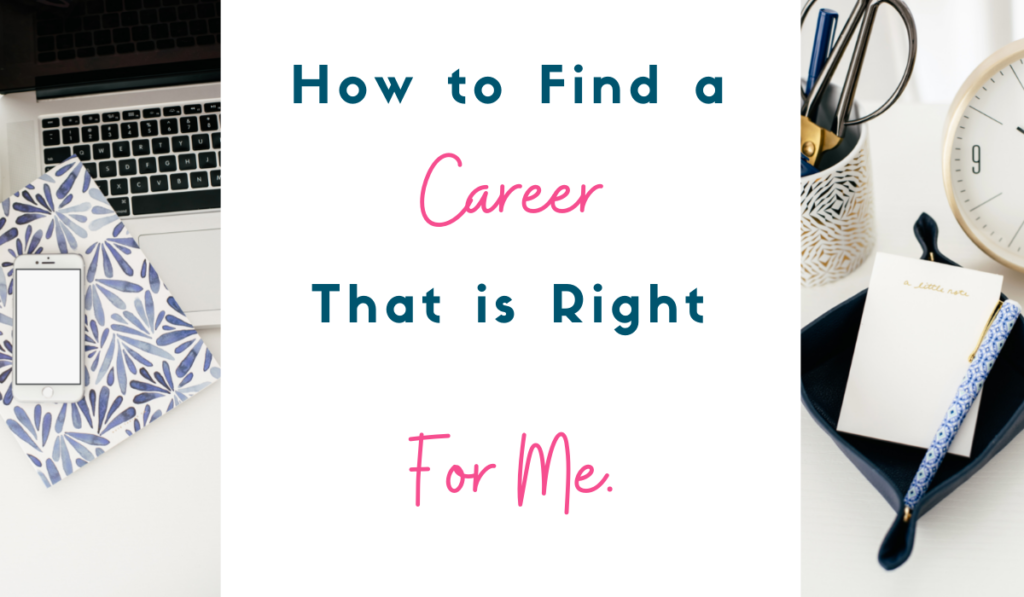
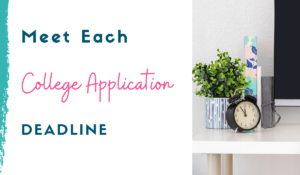
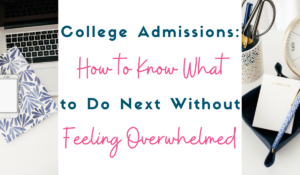
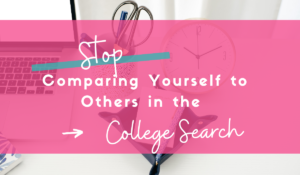
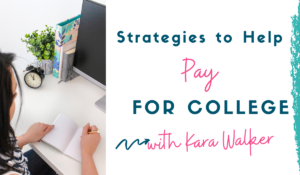
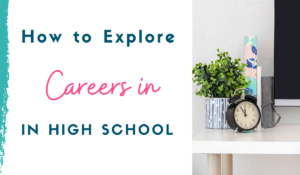
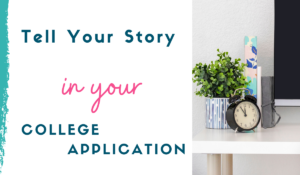
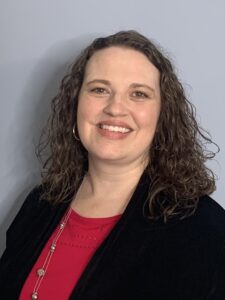
3 Responses